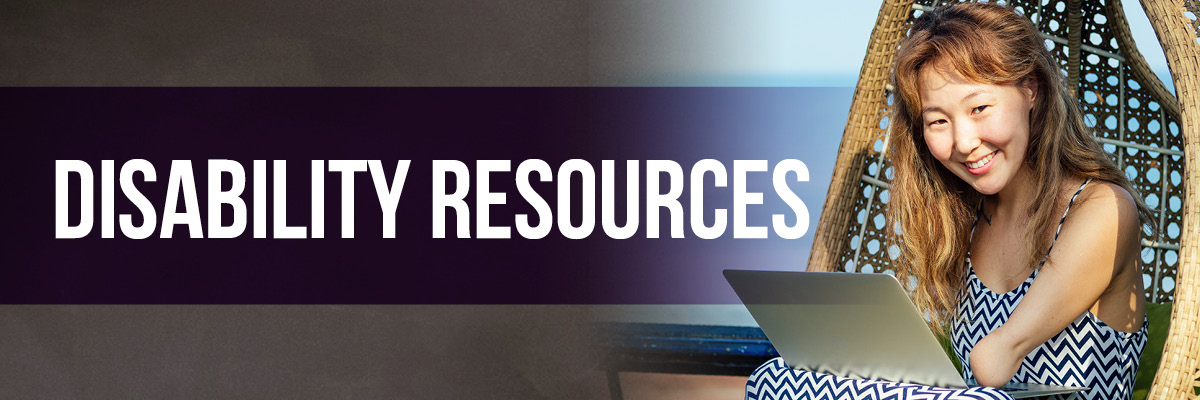
The Center for Equity and Excellence in Teaching and Learning (CEETL) expresses solidarity with students, faculty, and staff at SF State and beyond who are living with disabilities. Special thanks to the student members of DREAM and the Longmore Institute on Disability.
Disability affects over a quarter of American adults from every sector of society, yet social, political, and economic forces continue to marginalize disabled people. Because outdated ways of thinking and portrayals in the media still frame our existence as a personal tragedy, it’s especially important to support and appreciate the contributions of disabled people to our campus community.
CEETL Stands in Solidarity with our Students, Faculty, and Staff with Disabilities
As educators, as colleagues, and as a community, CEETL stands in solidarity with our students, faculty, and staff with disabilities—the one minority anyone can join at any time and that we all will join if we live long enough.
- We support our colleagues in Colleges and Departments across campus working to dismantle stigma and prejudice in teaching and learning by showcasing disability as a creative, generative force.
- We support members of the disability community who are afraid to publicly disclose a disability lest they be seen as incapable and inferior.
- We support our faculty, staff, and students with visible and invisible disabilities who regularly experience microaggressions, feel “invisible” and “unseen,” and whose strengths, contributions, and potential are not recognized due to ignorance and ableism.
- We support students, faculty, and staff who have faced ableism in the classroom from peers and educators, intentional or not.
- We support members of the campus and greater Bay Area disability communities who contribute much by providing services, positing new perspectives, and modeling nonstandard, innovative ways of doing things.
- We support colleagues, friends, family members, and others with disabilities who face additional medical and bureaucratic burdens during moments of heightened health crises. Disabled people, too often having to make do with less, are the first to experience the devastation of adverse social forces and the last to receive resources and aid.
A Word about Words
What is a Disability?
Disability is a social category where people are placed, ranked, and (de)valued due to their physical and/or mental condition. Not always a medical condition, disability is a powerful, culturally-rich identity that intersects with race, ethnicity, gender, sexuality, class, and nation.
What is Ableism?
When people are (de)valued because of their disability, it is called “ableism.”
Ableism is the network of discriminatory attitudes, practices, and beliefs that target or exclude individuals on the basis of disability. Within society, ableism can manifest in everyday conversations and/or on an institutional level. Disabled students report frequently experiencing versions of these microaggressions in their careers at SF State:
- “I think students with accommodations are cheating or asking for special treatment.”
- Access is a right, not special treatment.
- “I know what’s best for you.”
- Students, faculty, and staff with disabilities are experts with deep knowledge and understanding of what techniques work best to optimize their learning.
- “You don’t look disabled!”
- Disabilities come in many different forms, even among people with the same condition, and even for the same person on any given day; many aren’t immediately visible; in fact, the largest number of those registered with DPRC are people with invisible disabilities.
- “Disability is a medical issue that has nothing to do with politics or social justice.”
- The medical paradigm that has dominated western thinking for the past two centuries ignores a rich, complex history that helps shape a disability identity. Viewing people in this context gives us the opportunity to realize what disabled people contribute, accomplish, and create.
As Educators, We Need to Teach About...
As Educators, We Need to Facilitate and Expand a Space that Includes and Values Disabled People
- Disability intersects with all aspects of our identities, often exacerbating those differences
- Disability comes in many forms: physical and mental, visible and invisible, and is part of the human experience
- Ableism harms disabled and non-disabled people, while teaching with disability access in mind benefits many more students than those with disabilities
- Ableism is woven into the fabric of everything
- Ableism: anti-disability rhetoric, and the automatic assumption that being nondisabled is “better.” This includes daily interactions with structural inequalities.
- For example expressions such as “a good idea ‘falling on deaf ears,’” or a building’s broken elevator not being a priority.
Educational Resources
Anti-ableist Resources
A curated list of resources to support anti-ableist.
- Guidelines for Writing About People With Disabilities, ADA National Network (www.adata.org)
SF State Student Perspective Videos
Allyship
Stella Young’s TED Talk on Inspiration Porn, Australian comedian, journalist and disability rights activist.
Hashtags to Check Out
- #DisabledAndCute
- #CripTheVote
- #DisabledInSTEM
- #ActuallyAutistic
- #DisabilityTooWhite
- #Spoonie
- #KripHop
- #DisabilityJustice
- #DisabilityPride
US Disability History
- Douglas C. Baynton, Disability and the Justification for Inequality in American History
- Longmore & Umansky, The New Disability History: American Perspectives
- Susan Burch & Michael Rembis, eds., Disability Histories
- Kim E. Nielsen: A Disability History of the United States
On-Campus Resources
- Paul K. Longmore Institute on Disability
- DPRC (Disability Programs & Resource Center)
- DREAM (Disability Rights, Education, Activism, and Mentorship) at SF State: Student organization by and for disabled SFSU students
- CSU Learn self-paced course called, CSU-Serving Students with Disabilities: Introduction
Educational Resources
- Jay Dolmage, Academic Ableism: Disability in Higher Education (U of Michigan, 2017)
- Margaret Price, Mad at School: Rhetorics of Disability and Academic Life (U of Michigan, 2011)
- Tania Titchkofsky, The Question of Access: Disability, Space, Meaning (U of Toronto, 2011)